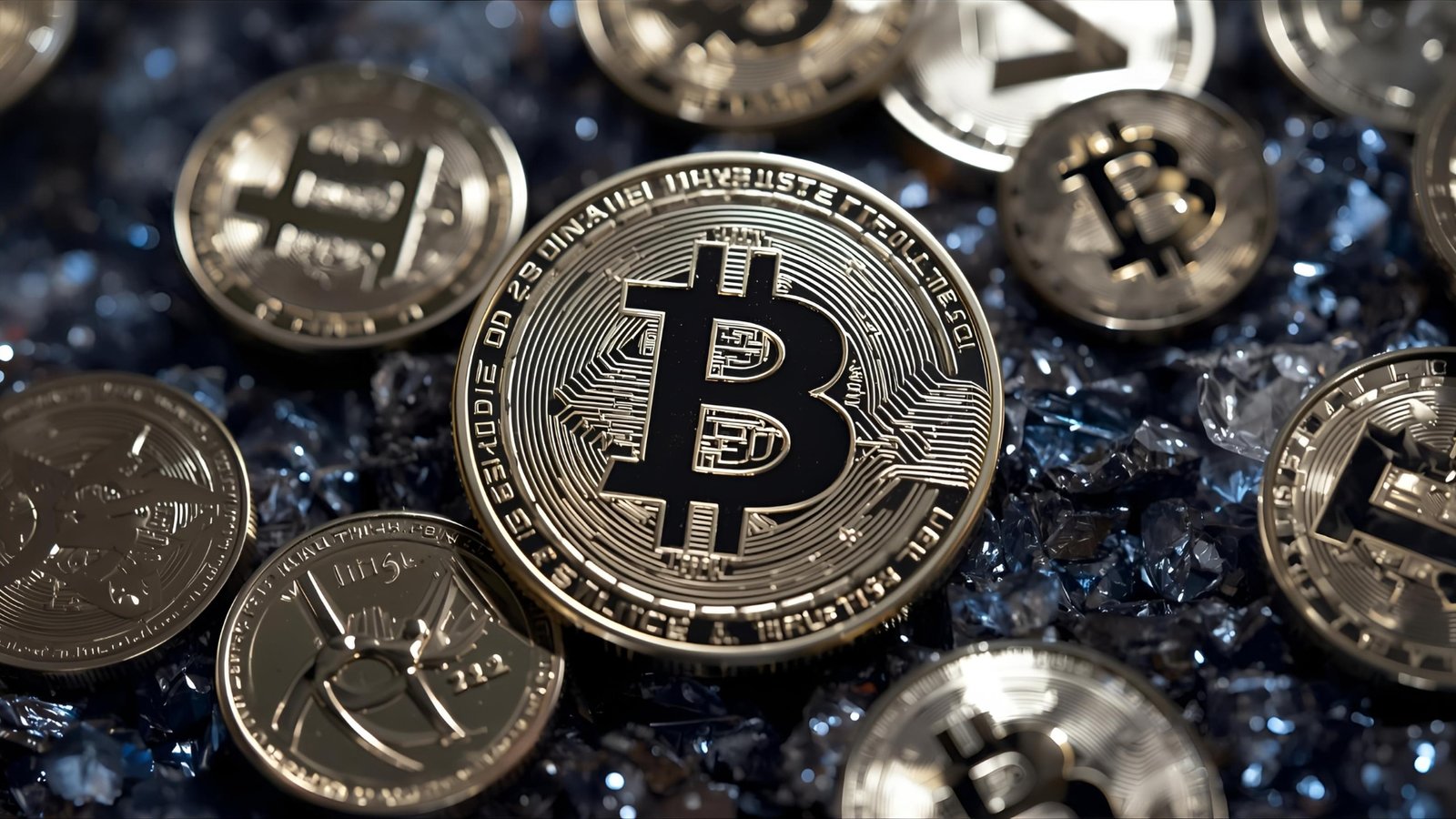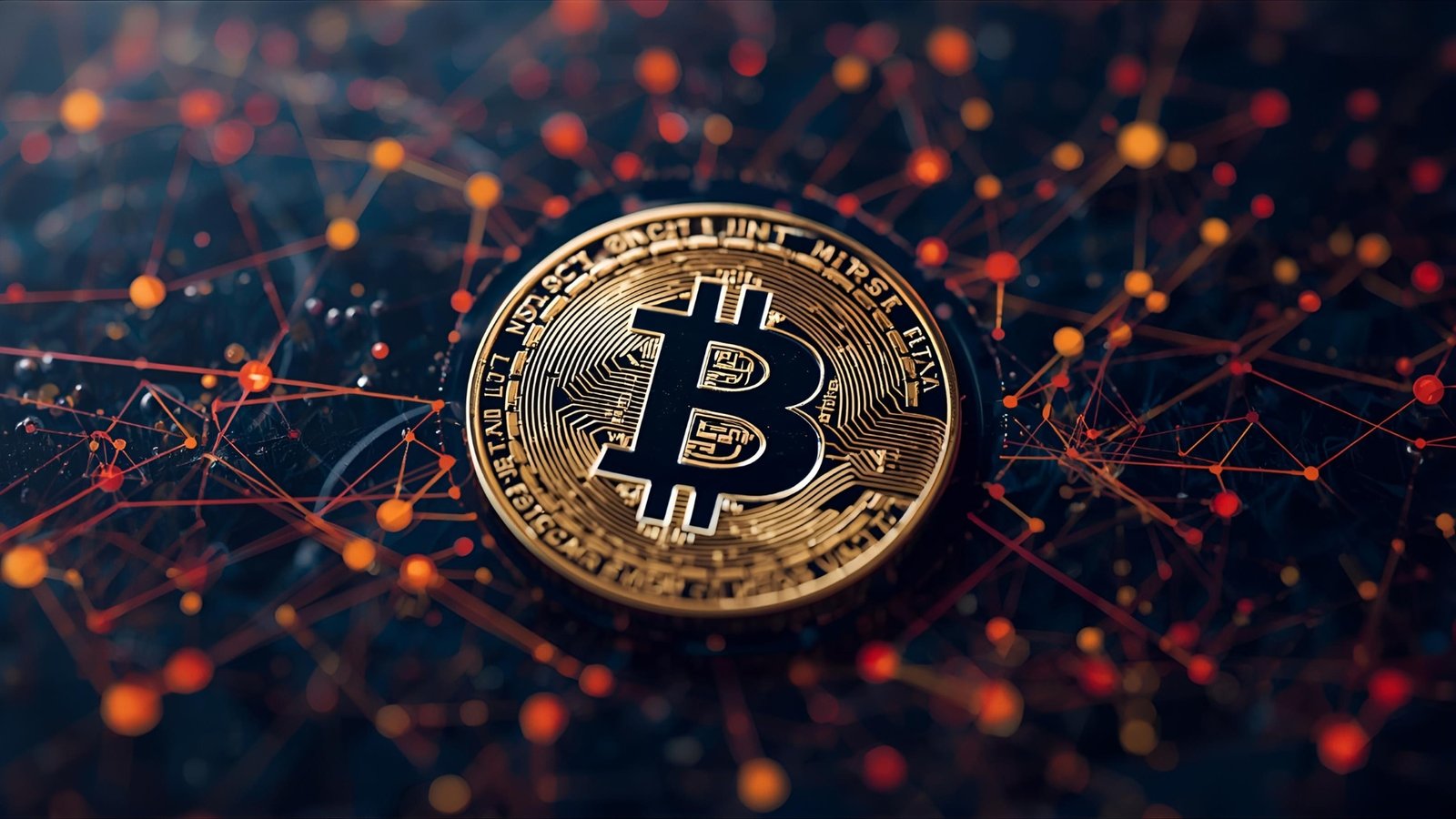Blockchain technology has steadily grown from a niche concept for tech enthusiasts and investors to a transformative force that has captured the attention of industries worldwide. At the forefront of this revolution are altcoins, or alternative cryptocurrencies to Bitcoin, which play a significant role in pushing blockchain technology towards mainstream adoption.
While Bitcoin remains the most well-known cryptocurrency, altcoins are increasingly driving blockchain’s evolution by solving key challenges such as scalability, privacy, transaction speed, and sustainability. As the blockchain space expands, altcoins are not just diversifying the digital asset market but are also accelerating blockchain adoption in various sectors, including finance, healthcare, and supply chain management.
The Role of Altcoins in the Blockchain Ecosystem
Exploring the Diverse World of Altcoins
Altcoins are essentially any cryptocurrency that is not Bitcoin. The term “altcoin” encompasses a wide range of digital assets, including well-known coins like Ethereum, Ripple (XRP), and Litecoin, as well as newer projects like Cardano and Polkadot. Each altcoin comes with its own unique set of features, use cases, and technological innovations designed to improve upon Bitcoin’s limitations.
Altcoins are often developed to address issues that Bitcoin’s protocol doesn’t effectively solve. For instance, Ethereum introduced the concept of smart contracts, allowing for programmable transactions that go beyond simple peer-to-peer transfers. Similarly, coins like Litecoin and Ripple offer faster transaction speeds and lower fees, making them more practical for everyday use.
These variations among altcoins are key drivers of blockchain adoption because they introduce fresh use cases, scalability, and interoperability across different blockchain networks, which is crucial for attracting a larger audience to blockchain technology.
Altcoins and Blockchain Scalability

Solving the Scalability Trilemma
One of the most significant hurdles in blockchain technology is scalability. As the number of users and transactions increases, blockchain networks can become congested, leading to slower transaction speeds and higher fees. This scalability problem is often referred to as the “scalability trilemma,” where blockchain networks struggle to balance three critical factors: decentralization, security, and scalability.
Altcoins are at the forefront of solving this issue. For instance, Ethereum’s Ethereum 2.0 upgrade aims to move from a proof-of-work consensus mechanism to proof-of-stake, significantly increasing transaction throughput. Similarly, Polkadot and Cardano have introduced innovative features such as sharding and multi-chain networks, allowing transactions to be processed simultaneously across different chains without sacrificing decentralization or security.
By improving scalability, altcoins help blockchain technology scale beyond its current limitations, paving the way for widespread adoption in industries that require high throughput, such as finance, healthcare, and supply chain logistics.
The Drive for Lower Transaction Fees
Reducing Costs for Users and Businesses
High transaction fees have long been a barrier to blockchain adoption, particularly for small-scale transactions. Bitcoin’s transaction fees can become prohibitively expensive during periods of high network congestion. This is where altcoins shine. Many altcoins offer lower transaction fees, making them more suitable for everyday use, microtransactions, and even small businesses.
Litecoin, for example, is often hailed as the “silver” to Bitcoin’s “gold” because it offers much faster transaction times and lower fees. In fact, Litecoin transactions cost just a fraction of a cent, which makes it far more feasible for everyday purchases. Likewise, Ripple (XRP) was designed specifically for remittances and international payments, where transaction costs are crucial. XRP boasts ultra-low fees and fast settlement times, making it an attractive option for cross-border transactions.
Altcoins that reduce transaction fees also make blockchain more accessible to the general public. For users who want to send money across the globe or pay for goods and services in digital currencies, the ability to do so with minimal fees enhances the practicality of blockchain technology in everyday life.
Fostering Privacy and Security

Enhancing User Privacy in the Digital Age
Privacy is a critical concern for digital users and businesses alike, especially as data breaches and privacy violations continue to make headlines. Traditional financial systems and centralized platforms collect vast amounts of personal data, which can be vulnerable to cyberattacks. Altcoins like Monero and Zcash offer advanced privacy features that ensure transactions are confidential, giving users more control over their financial data.
Monero, for example, uses a technique called ring signatures to hide the sender, receiver, and transaction amount, making it nearly impossible to trace the transaction. Similarly, Zcash employs zk-SNARKs (zero-knowledge succinct non-interactive arguments of knowledge) to ensure complete privacy while still allowing for transaction validation on the blockchain.
These privacy features are vital in attracting users who value anonymity and security, especially in industries such as finance, healthcare, and law, where confidentiality is paramount. Altcoins that prioritize privacy help build trust in blockchain technology, enabling more individuals and businesses to use decentralized systems without fearing exposure.
Altcoins Enabling Cross-Chain Interoperability
Bridging Blockchain Networks for Seamless Interaction
Blockchain networks often operate in isolation, creating silos that limit their effectiveness and scalability. For blockchain to reach its full potential, different networks must be able to communicate with each other. Altcoins like Polkadot, Cosmos, and Chainlink are developing solutions for cross-chain interoperability, enabling different blockchains to communicate, share information, and execute transactions across different platforms seamlessly.
Polkadot, for example, allows for the transfer of data and value between different blockchains through its “parachain” structure. This cross-chain communication is a game-changer for blockchain adoption because it expands the functionality and reach of decentralized applications (dApps), allowing them to tap into multiple networks and user bases.
Altcoins driving interoperability help foster a more interconnected and versatile blockchain ecosystem. This is essential for creating a global decentralized economy, where assets, information, and services can flow freely across borders and blockchain networks.
See More: Cryptocurrency and blockchain technology Powers Digital Money Safely
Driving User Adoption with Real-World Use Cases
Altcoins in Everyday Applications
For blockchain technology to gain mainstream adoption, it needs to be more than just a tool for investors and developers—it needs to be a part of everyday life. Altcoins contribute significantly to this by powering real-world use cases in various industries. Ethereum, for example, is the foundation of the decentralized finance (DeFi) ecosystem, where users can borrow, lend, and trade cryptocurrencies without relying on traditional financial institutions.
Similarly, altcoins like VeChain are revolutionizing supply chain management by offering tamper-proof, traceable data for products as they move from manufacturer to consumer. This provides businesses with a more efficient and transparent supply chain while also benefiting consumers who can verify the authenticity and origin of their purchases.
As more altcoins support real-world applications, they increase blockchain’s practical value and pave the way for broader acceptance. Businesses and individuals will be more inclined to adopt blockchain technology if it addresses tangible needs and improves their daily lives.
The Future of Altcoins and Blockchain Adoption
A Collaborative Ecosystem
Looking ahead, it’s clear that altcoins will continue to play an essential role in driving blockchain technology towards mainstream adoption. By addressing issues such as scalability, privacy, transaction costs, and real-world use cases, altcoins are paving the way for blockchain to become a ubiquitous part of our digital lives.
Furthermore, as more industries and governments embrace blockchain’s potential, the influence of altcoins will only grow. Their ability to innovate, enhance network interoperability, and offer tangible benefits to users will help blockchain technology become more widespread and accepted on a global scale.
Conclusion
Altcoins are a crucial part of the blockchain revolution. By improving scalability, reducing transaction fees, enhancing privacy, enabling interoperability, and supporting real-world use cases, they are driving blockchain towards mainstream adoption. As more industries recognize the potential of blockchain and embrace altcoins, the technology will continue to evolve, shaping the future of finance, business, and beyond.
FAQs
Q: What is the primary difference between Bitcoin and altcoins?
The main difference lies in their purpose and technology. While Bitcoin is primarily a store of value and a digital currency, altcoins often offer additional features, such as smart contracts, privacy enhancements, or solutions for scalability.
Q: Can altcoins replace Bitcoin?
While altcoins offer unique features and advantages, Bitcoin remains the dominant cryptocurrency. However, certain altcoins could surpass Bitcoin in specific use cases, such as faster payments or privacy.
Q: How do altcoins impact blockchain scalability?
Altcoins improve scalability by introducing features like sharding, proof-of-stake, and multi-chain networks, allowing blockchain networks to process more transactions without sacrificing security.
Q: Are privacy-focused altcoins safe to use?
Privacy-focused altcoins like Monero and Zcash offer advanced encryption methods, making them secure for users who prioritize confidentiality. However, users should always be aware of the regulatory landscape in their region.
Q: How do altcoins contribute to mainstream adoption of blockchain?
Altcoins drive blockchain adoption by solving key challenges such as scalability, transaction costs, privacy, and real-world applicability. They provide innovative solutions that make blockchain more accessible to a broader audience.




















